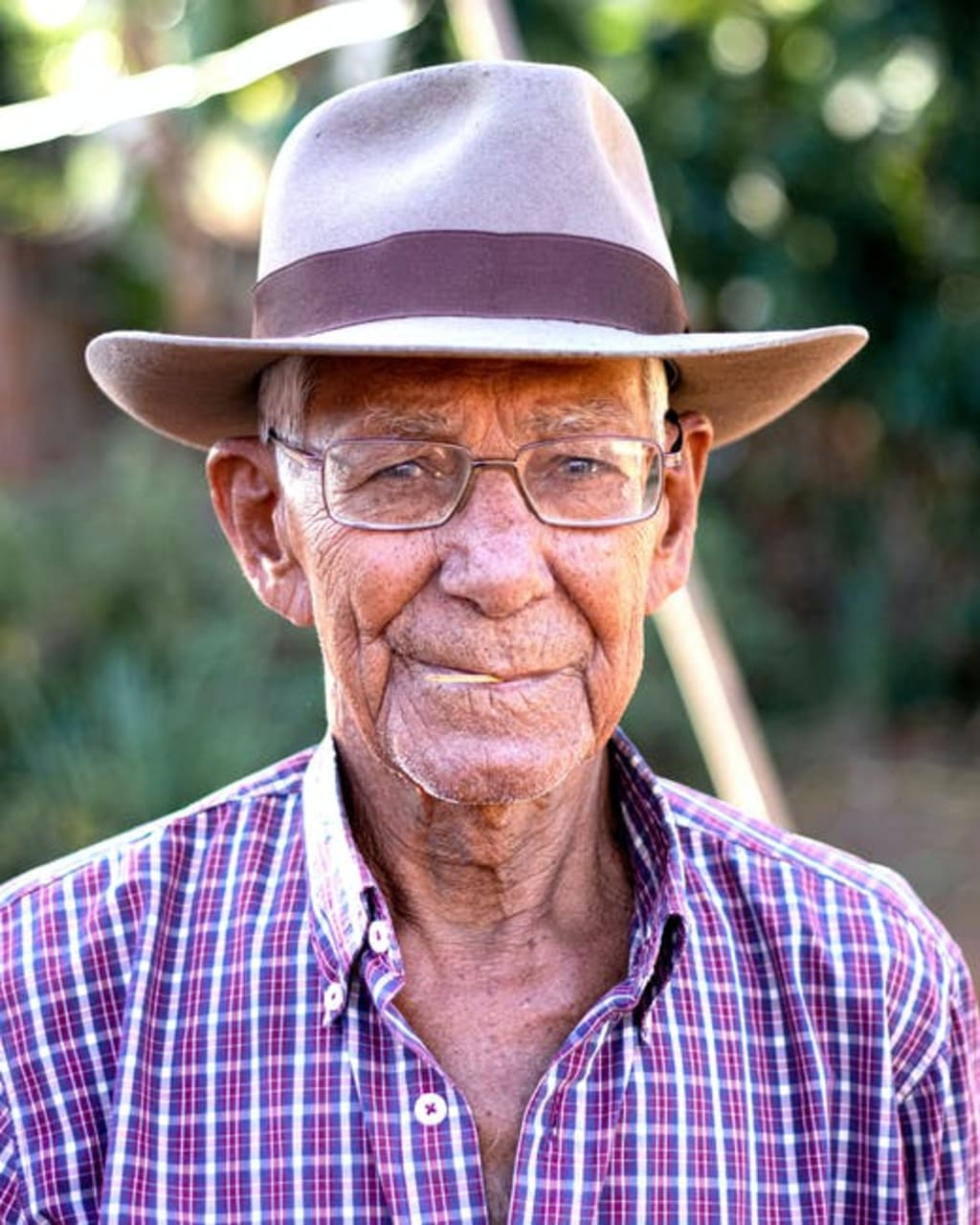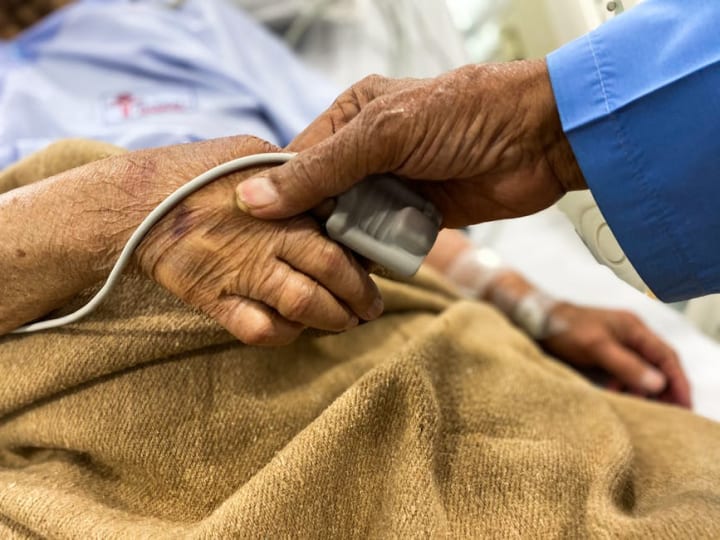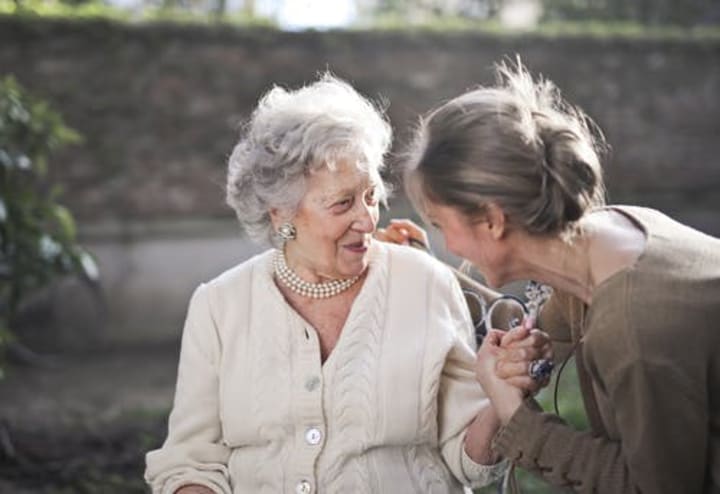Dying as a Right
peace and dignity as a healthcare option for the terminally ill

In June of 2009, Superman died an agonizingly painful and slow death, and all we could do as his family was watch. My grandfather suffered for a year as his skin yellowed while he fell ill immediately following every meal every day and could only watch as my mother cleaned after him, turning away to hide her tears at seeing her father in such a state. He would say it was the “cancer diet” when friends would comment about his severe weight loss. I realized my childhood hero would never come back when he lost his ability to speak coherent thoughts, and in this moment, I also was horrified to learn this was the fate of most cancer patients in the United States. Whether at home, in hospice, or in a nursing home, their final days are agonizing and unimaginable, yet still somehow always unexpectedly sudden. Prognosis should not strip the level of compassion shown to the terminally ill, and while this topic may be grim for us, it is far more unsettling to know that there has been an option available but not legalized for some time for them. Physician assisted suicide is the act of providing a well-informed and dignified option to end a life peacefully by consumption of a small cocktail provided by a physician to end the suffering of a terminally ill patient. Physician assisted suicide should be legalized nationwide in the United States mirroring the Oregon Death with Dignity law because it is a dignified end of life process that allows sufferers of terminal illnesses to end their suffering peacefully on their own terms after weeks of counseling is given.
Death with Dignity

There are currently only a handful of states that have adopted the Oregon Death with Dignity law, but the qualifying factors remain consistent with each case. You must be a resident age 18 or older of a participating state with a terminal illness that is estimated to be life-ending within 6 months, you have to go through intense counseling regarding alternative options, you must be found of sound mind, the drug must be requested by the patient, and on the day the cocktail is taken it must be self-ingested. (Dignity)
The discomfort associated with speaking about the reality of death prevents education about the options open for the terminally ill, but by researching into what it means to dignify the process of what is typically a very painful and tragic death and turn it into a peaceful transition for their loved one, more people may realize that this can be a much better alternative than a natural end.
During the time of a family member’s death the process begins of calling funeral home, notifying family, contacting lawyers and insurance companies, and simultaneously grieving. Death for terminally ill patients is painful, expensive, and often leaves individuals to die in agony with dehumanizing symptoms. With this as the normal way to die as terminally ill individuals in the United States, both dignity and peace have been stripped from this patient as they are not allowed to legally take means to end the suffering on their own but nothing else can be done to treat their condition. There is no benefit in forced suffering except for that of the family members to say they had a few extra days, weeks, or months at the expense of their loved one.
Illness does not take away a human's rights to bodily autonomy

There is no benefit to the patient in taking peace and dignity, choosing for them, or assuming they need to be spoken for because they are ill. Terminally ill patients are often treated differently because it naturally is hard to speak with someone who is dying. Family may feel grief as loved ones slip away, and they hope and pray for them to stay alive for longer than they may want for themselves. Family and friends often feel obligated to try to help but added discomfort for the patient on top of physical pain comes from treating a sick individual as if they were a child and unable to make decisions about their own health. This refusal to understand a compassionate and peaceful process can feel beneficial to the family while at the same time unfairly taking the only option at a medically dignified death available for the terminally ill individual.
A Dignified Process

Dignity is the bearing, conduct, or speech indicative of self-respect or appreciation of the formality or gravity of an occasion or situation. (William Collins Sons) Physician assisted suicide meets this definition with the meticulously planned process that allows for a death in which a patient’s loved ones can remember them for who they are, and not as who they were as a sick individual.
Dignity is maintained throughout the entire process of physician assisted suicide compared to traditional means where there is no medical reasoning for making patients suffer physically and mentally as they slowly decline and die if this is not what they truly want. Postmortem arrangements such as purchasing a funeral package and handling estates can be done with the individual being able to have their own say in this, which is not typical of any other death of a terminally ill patient. The dignity offered here is the family knowing not only was everything how their family member wanted things to be, but they also personally hand picked each arrangement.
The Cost

The financial aspects of these clinics can vary greatly dependent on the services offered, insurance accepted, and if they accept government funded health insurance programs. One strong argument often noted against physician assisted suicide is the potential cost to taxpayers. At this time, the majority of physician assisted suicide clinics do not accept government funds. Clinics will work with their patients on a case by case basis, and at this time there is no effect on life insurance payouts for physician assisted suicides, meaning loved ones will have significantly less of a financial burden upon the death of their loved one. Some non-profit organizations even offer their services for free, knowing the impact they are making will help so many people to ease the suffering of patients and families. (Dignity)
At Peace

Peace is “a state of mutual harmony between people or groups, especially in personal relations.” (Houghton Mifflin Harcourt) Physician assisted suicide offers significantly more than death alone or anxiously outwaiting an illness. Peaceful times in the last days of patients’ lives assure them their family is taken care of and they are no longer obligated to suffer.
One important consideration in the peaceful process of physician assisted suicide is the initial interview. Immediately, resources and information for alternative programs is provided, including counseling, support groups, and literature on various aspects of terminal illnesses. (Dignity)
The Big Picture

The question has risen whether this may be a form of murder due to loopholes about the patient’s mental capacity and the process of them not administering the medication themselves if they wanted to die, in addition to doctors taking an oath to save everyone. Each patient goes through multiple sessions of counseling and offers of other options. Before drinking the cocktail, they are asked if they understand that it will end their life. They must be able to verbalize that they understand, and they have two minutes to drink the liquid themselves.
Due to the dignified manner and many resources offered to peacefully work with terminally ill patients to have all of their end of life care granted from funeral arrangements, family inclusion, having a peaceful and painless alternative to a lifetime of suffering, and respecting human rights to bodily autonomy, physician assisted suicide by self-administered cocktail modeled from Oregon Death with Dignity law should be legalized throughout all of the United States.
___________________________________________________
Works Cited
Dignity, Oregon Death with. https://www.deathwithdignity.org/learn/access#eligibility. n.d. website. 24 11 2020.
Houghton Mifflin Harcourt. https://www.dictionary.com/browse/peace?s=t. 2020. Online Dictionary. 24 11 2020.
William Collins Sons. https://www.dictionary.com/browse/dignity?s=t. 2020. Online Dictionary. 24 11 2020.
Photo credit: All photos used were royalty free images obtained from pexels.com
____________________________________________________Thank you for reading Dying as a Right. Did you enjoy viewing this? Please check out my other work, leave a heart, and maybe even leave a small tip if you choose to do so!






Comments
There are no comments for this story
Be the first to respond and start the conversation.